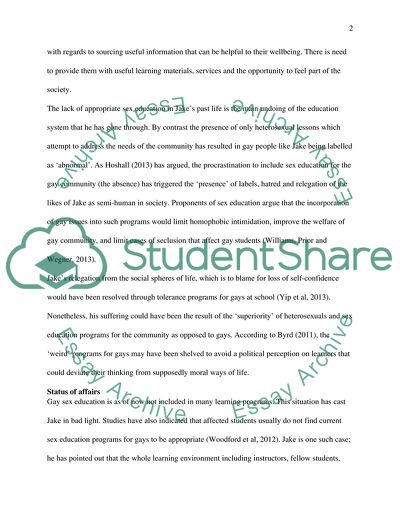Cite this document
(The Ethics of Sex Education for Homosexuals Case Study, n.d.)
The Ethics of Sex Education for Homosexuals Case Study. Retrieved from https://studentshare.org/psychology/1631280-sexuality-and-identity
The Ethics of Sex Education for Homosexuals Case Study. Retrieved from https://studentshare.org/psychology/1631280-sexuality-and-identity
(The Ethics of Sex Education for Homosexuals Case Study)
The Ethics of Sex Education for Homosexuals Case Study. https://studentshare.org/psychology/1631280-sexuality-and-identity.
The Ethics of Sex Education for Homosexuals Case Study. https://studentshare.org/psychology/1631280-sexuality-and-identity.
“The Ethics of Sex Education for Homosexuals Case Study”, n.d. https://studentshare.org/psychology/1631280-sexuality-and-identity.


